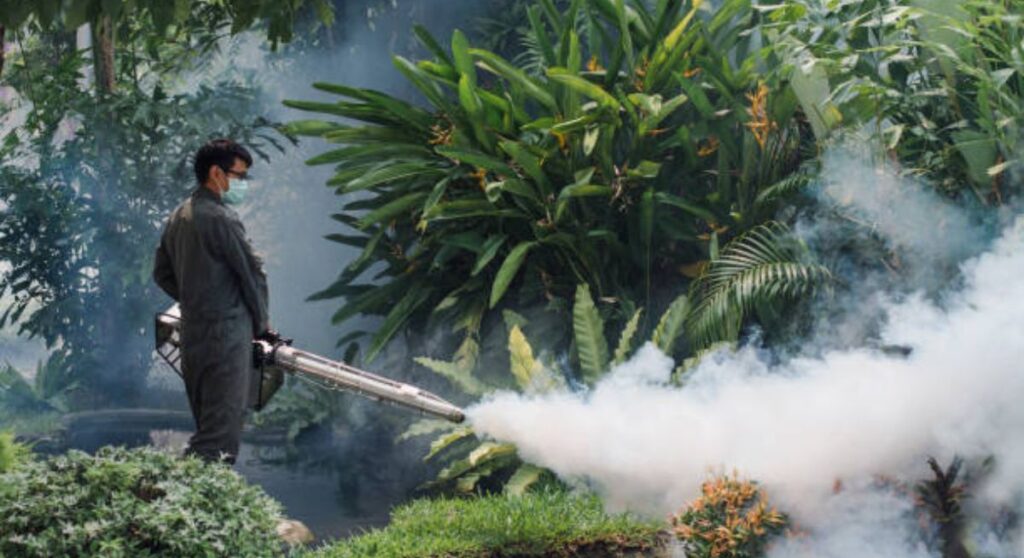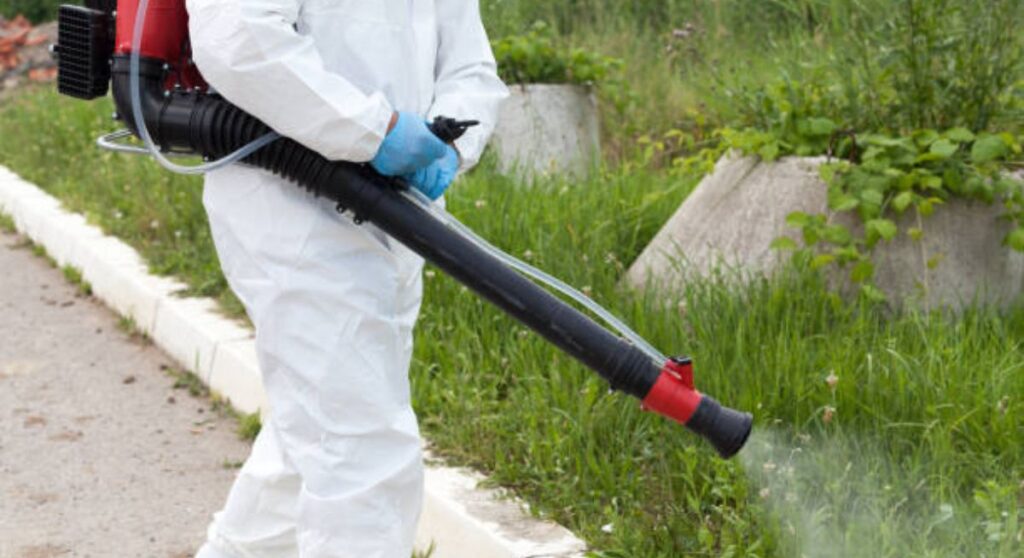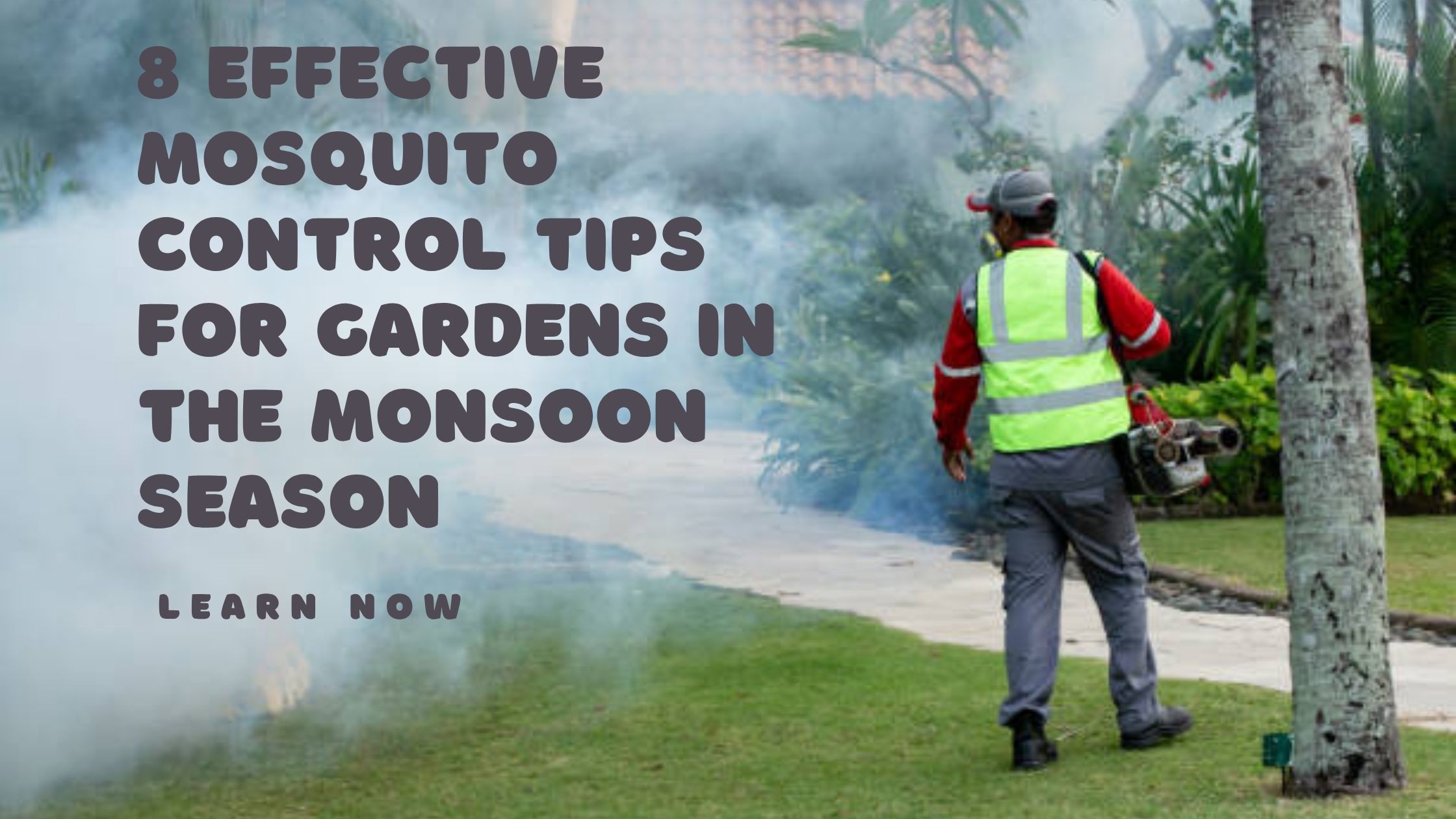🌦️ Introduction
🏡 8 Effective Mosquito Control Tips for Gardens in the Monsoon Season
Monsoon brings lush greenery and a refreshing atmosphere—but it also invites unwanted guests: mosquitoes. Gardens become prime breeding grounds due to stagnant water and humid conditions. If you’re tired of swatting away these pests, it’s time to take action. In this article, we’ll explore 8 effective, eco-conscious ways to keep your garden mosquito-free during the rainy season..
🦟8 Effective Mosquito Control Tips for Monsoon Gardens

1. Eliminate Standing Water
- Mosquitoes breed in stagnant water—flower pots, buckets, and puddles are hotspots.
- Regularly check and empty water from saucers, containers, and garden decor.
2. Use Mosquito-Repellent Plants
- Plant citronella, lemongrass, marigold, basil, and lavender.
- These natural repellents add beauty while keeping bugs at bay.
3. Install Outdoor Fans or Water Circulators
- Mosquitoes are weak fliers; a fan disrupts their flight path.
- Use pond aerators or water pumps to keep water moving.
4. Apply Neem Oil or Garlic Spray
- Mix neem oil or crushed garlic with water and spray on plants and garden corners.
- These natural solutions repel mosquitoes without harming your garden.
5. Clean Gutters and Drains Regularly
- Clogged drains and gutters collect water and become breeding zones.
- Weekly cleaning during monsoon is essential.
6. Use Mosquito Traps or DIY Solutions
- Set up UV light traps or vinegar-based traps near garden seating areas.
- DIY tip: Fill a bowl with sugar water and yeast to attract and trap mosquitoes.
7. Introduce Natural Predators
- Encourage birds, frogs, and dragonflies that feed on mosquitoes.
- Install birdbaths or small water features to attract them.
8. Light Up Strategically
- Avoid bright white lights that attract mosquitoes.
- Use yellow or LED lights which are less attractive to insects.
Great choice, Vinay! Here’s a detailed section on:
🌱 Benefits of Mosquito Control in Gardens
Controlling mosquitoes in your garden—especially during the monsoon—isn’t just about comfort. It’s a vital step toward creating a safe, healthy, and enjoyable outdoor space. Here are the key benefits:
🛡️ 1. Protects Against Mosquito-Borne Diseases
- Reduces the risk of illnesses like dengue, malaria, and chikungunya.
- Especially important for families with children, elderly, or pets.
🌿 2. Promotes a Healthier Garden Ecosystem
- Prevents mosquito larvae from disrupting water features and plant health.
- Encourages biodiversity by protecting beneficial insects like bees and butterflies.
🪴 3. Improves Outdoor Comfort and Usability
- Makes gardens more enjoyable for evening relaxation, gardening, or hosting guests.
- Reduces the need for constant swatting or using harsh repellents.
🧘 4. Supports Mental Well-being
- A mosquito-free garden allows for peaceful time outdoors—ideal for meditation, yoga, or reading.
- Enhances the calming effect of nature without the stress of bites.
🌍 5. Encourages Eco-Friendly Living
- Using natural mosquito control methods aligns with sustainable gardening practices.
- Reduces reliance on chemical sprays that harm the environment.
🏡 6. Boosts Property Appeal
- A well-maintained, mosquito-free garden adds value to your home.
- Makes your outdoor space more inviting for potential buyers or renters.
Here’s a trending insight section tailored for your blog:
📈 Trending Insight
Mosquito control during the monsoon season is a hot topic across India, especially in urban areas where stagnant water and humidity create ideal breeding conditions. According to recent reports:

- Dengue cases spike sharply during monsoon, with cities like Bengaluru recording over 400 cases in July alone.
- Search interest in mosquito control and herbal repellents increases significantly between June and September, aligning with peak rainfall and mosquito activity.
- Public health experts emphasize the importance of preventive measures like clearing standing water, using repellents, and wearing protective clothing to combat mosquito-borne diseases such as dengue, malaria, and chikungunya.
This seasonal surge in concern makes mosquito control content highly relevant and shareable—especially when it includes natural, eco-friendly solutions that resonate with health-conscious readers.
Absolutely, Vinay! Here’s a strong closing section with final, actionable suggestions to reinforce your blog’s value and leave readers empowered:
✅ Final Important Suggestions for Mosquito Control in Gardens
Before you wrap up your mosquito-proofing efforts, keep these key suggestions in mind to ensure long-term success:

🧼 1. Make Mosquito Control a Routine, Not a Reaction
- Don’t wait for bites to take action—inspect your garden weekly during the monsoon.
- Prevention is far more effective (and eco-friendly) than emergency chemical treatments.
🪴 2. Combine Multiple Strategies
- Relying on just one method (like repellent plants or traps) won’t be enough.
- Layer your defenses: eliminate water, use natural sprays, install fans, and attract predators.
🧪 3. Avoid Overuse of Chemical Repellents
- Chemical foggers and sprays may offer quick relief but can harm beneficial insects and soil health.
- Use them sparingly and strategically, especially near edible plants.
🧘 4. Create a Mosquito-Free Zone for Relaxation
- Designate a seating area with citronella candles, yellow lighting, and repellent plants.
- This lets you enjoy your garden even during peak mosquito hours.
📅 5. Stay Updated with Local Health Advisories
- Follow local municipal updates on mosquito-borne disease outbreaks.
- Participate in community clean-up drives to reduce breeding grounds beyond your garden.
Would you like me to help format this into a downloadable checklist or turn it into a carousel for social media?
📝 Conclusion
Mosquitoes may love the monsoon, but your garden doesn’t have to suffer. With these 8 practical tips, you can enjoy the rains without the bites. Stay proactive, stay eco-friendly, and let your garden thrive—mosquito-free!
📚 References
- Truly Nolen India – Mosquito Control During Monsoon Season
Offers detailed strategies including eliminating standing water, using natural repellents like neem and citronella, and installing mosquito nets and screens.
Read the full guide - Times of India – Organic Pest Control for Monsoon Gardens
Shares 7 organic pest control methods for vegetable gardens, including eco-friendly mosquito deterrents.
Explore the article - Rentokil India – Mosquito-Borne Disease Prevention
Highlights the health risks of mosquito infestations during monsoon and offers protective measures.
Learn more here
❓ FAQs
Q1: Can I use chemical sprays in my garden?
A: While effective, chemical sprays can harm beneficial insects and plants. Opt for natural alternatives unless absolutely necessary.
Q2: How often should I check for stagnant water?
A: Ideally, inspect your garden every 2–3 days during the monsoon.
Q3: Are mosquito-repellent plants effective?
A: Yes, especially when planted in clusters near seating areas or entry points.

